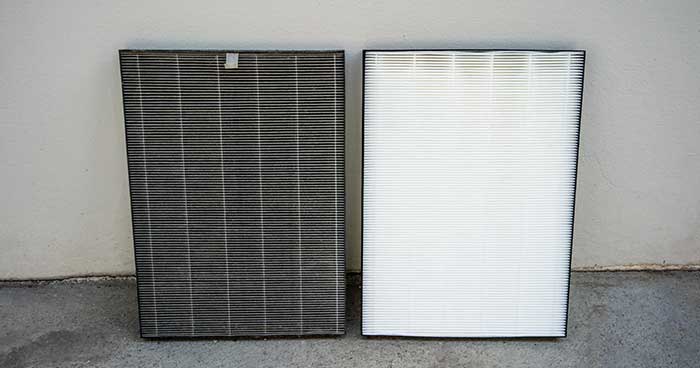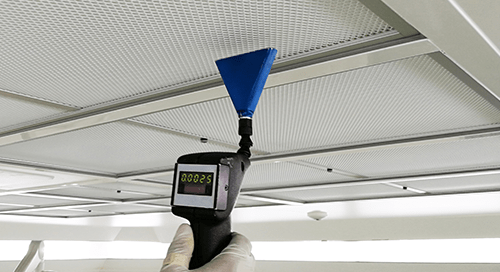When it comes to air quality and filtration, HEPA (High-Efficiency Particulate Air) filters are widely recognized for their effectiveness in capturing airborne particles. Whether in residential or commercial settings, maintaining the efficiency and reliability of HEPA filters is crucial in ensuring clean and healthy indoor air. One key aspect of this maintenance is the certification of HEPA filters, but how often do they need to be certified?

Credit: www.amazon.com
Understanding HEPA Filter Certification
HEPA filters are subject to certification standards established by organizations such as the United States Department of Energy (DOE) and the European Union (EU). Certification involves rigorous testing to verify the filter’s efficiency in capturing particles of specific sizes. In the United States, HEPA filters are certified based on their ability to capture at least 99.97% of particles sized 0.3 microns or larger.
HEPA filters that meet these standards receive a certification label, indicating their efficiency and compliance with industry regulations. However, it’s important to note that over time, the performance of HEPA filters can decline due to factors such as usage, environmental conditions, and maintenance practices. As a result, periodic certification is necessary to ensure that the filters continue to meet the required standards.
Factors Affecting HEPA Filter Certification Frequency
The frequency of HEPA filter certification can vary depending on several factors:
| Factors | Impact |
|---|---|
| Filter Usage | High usage may warrant more frequent certifications. |
| Environmental Conditions | Harsh environments with high particle concentrations may necessitate more frequent certifications. |
| Maintenance Practices | Regular maintenance can extend the interval between certifications. |
By considering these factors, businesses and individuals can determine the ideal certification schedule for their HEPA filters, ensuring ongoing compliance and optimal performance.

Credit: servicechampions.com
Recommended Certification Intervals
While there is no one-size-fits-all answer to how often HEPA filters need to be certified, industry guidelines and best practices can offer valuable insights. The following are recommended certification intervals based on filter usage and environmental conditions:
- Low to Moderate Usage: For HEPA filters in residential settings or low-usage commercial environments, certification every 2 to 3 years may be sufficient.
- High Usage and Harsh Environments: In industrial or healthcare facilities with heavy usage and challenging environmental conditions, certification on an annual or semi-annual basis is advisable.
It’s important to note that these recommendations are general guidelines, and individual circumstances may warrant adjustments to the certification frequency. Regular monitoring of filter performance and consultation with HVAC professionals can aid in determining the most suitable certification schedule.
Ensuring Continuous Filtration Performance
Beyond certification, proper maintenance and monitoring are essential for ensuring the continuous performance of HEPA filters. Regular visual inspections, pressure drop measurements, and filter replacements as needed contribute to sustained filtration efficiency.
By adhering to the recommended certification intervals and implementing proactive maintenance practices, individuals and organizations can uphold the quality of indoor air and reap the full benefits of HEPA filtration systems.
Frequently Asked Questions For How Often Do Hepa Filters Need To Be Certified?
Faq 1: How Often Should Hepa Filters Be Certified?
Certification for Hepa filters typically lasts for 1-3 years. However, it is recommended to follow the manufacturer’s guidelines for specific time intervals.
Faq 2: Why Is Hepa Filter Certification Important?
Hepa filter certification ensures the filter’s efficiency in removing airborne particles, allergens, and pollutants. It guarantees the filter’s quality and allows for cleaner and healthier indoor air.
Faq 3: How Can I Tell If My Hepa Filter Is Certified?
You can verify the certification of your Hepa filter by checking for the certification label provided by an accredited organization, such as the Association of Home Appliance Manufacturers (AHAM).
Faq 4: Are All Hepa Filters Certified?
No, not all Hepa filters are certified. It’s crucial to purchase filters with recognized certifications to ensure their effectiveness and quality in improving the air quality within your living spaces.
Conclusion
HEPA filters play a vital role in maintaining clean and healthy indoor air quality. As part of their upkeep, periodic certification is necessary to verify their continued efficiency and compliance with industry standards. The frequency of certification depends on factors such as filter usage, environmental conditions, and maintenance practices. By adhering to recommended certification intervals and prioritizing regular maintenance, individuals and businesses can ensure the consistent performance of HEPA filters, contributing to improved indoor air quality and overall well-being.
Rakib Sarwar is a Registered Pharmacist and a reputed health and wellness blogger. He has a great interest in Air purifiers.
